|
|
Delta Symposium XVI starts today
Symposium examines
Region and the Politics of Culture
Today,
Arkansas State
University-Jonesboro will open Delta Symposium XVI: Region and the
Politics of Culture, taking place from Wednesday-Saturday, April 7-10. This 16th
annual conference brings scholars, students, musicians,
and artists from across the nation to the ASU campus to explore and experience the Delta’s
history and culture. This year's symposium offers eighteen sessions and
more than fifty participants.
The event is sponsored by ASU’s
Department of English and Philosophy
in the College of Humanities and Social Sciences, with additional on-campus support, including a grant from the National
Endowment for the Arts. Most
events will take place in the Mockingbird Room on the third floor of
ASU’s Student Union. For details, contact the Department of English and
Philosophy at (870) 972-3043, visit the
Delta Symposium Web site,
or download a printable program.
A plaintext version of the full program is also available.
All symposium events are free and
open to the public.
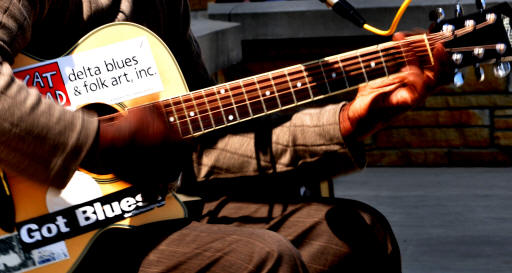
Events begin today at 12 noon,
when Dr. Glen Jones, senior associate vice chancellor,
Academic Affairs and Research, gives a welcome and introduction to
Delta Symposium XVI: Region and the Politics of Culture. This will
be followed by a panel session, “Teaching Diversity at ASU,” in
ASU’s Student Union Auditorium. ASU
professors Dr. Mary Donaghy, Dr. Jon Lofton, Dr. Jeanine Weekes Schroer,
Dr. Ruth Owens, and Dr. Joe Key will provide
students, faculty, and guests with perspectives on teaching in response
to the Delta region’s multifaceted diversity. Dr. Cherisse Jones-Branch
serves as moderator, and Dr. Gloria Gibson, executive vice
president and provost, University of Northern Iowa, serves as
discussant. At 2 p.m., a panel, "Teaching True Grit by
Charles Portis as a regional community text in composition classes,"
will be held in the Mockingbird Room. Panelists from the University
of Arkansas at Fort Smith include ASU alumna Dr. Glinda F. Hall,
Melissa Whiting, Keith Fudge, Mike Cooper, and Kevin Jones. Dr.
Victoria Spaniol serves as moderator. At 3:30 p.m., a panel will complete the day’s
activities with “Voices of Protest in American Expressive Culture.”
Graduate students in ASU’s English and Philosophy Department will
directly address the theme by exploring how cultural expression is part
of the political dynamics of protest. Barry Broussard, Jacob Hutchinson,
Angelyn Metcalf, and Amber Strother will offer perspectives on a wide
range of expressive culture, including reggae, rap, heavy metal, and the
country music of Loretta Lynn.
Dr. Trudier Harris is DB XVI keynote speaker April 8
ASU’s 16th annual Delta
Symposium will present the first of its keynote speakers,
Dr. Trudier
Harris, on Thursd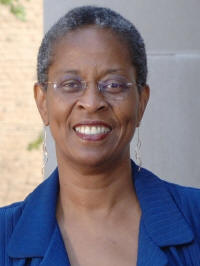 ay, April
8, at 11 a.m. in ASU’s Reng Student Union Auditorium. Dr. Trudier Harris will present “The Scary Mason-Dixon Line:
African American Writers and the South,” based upon her recently
published book of the same name.
In “The Scary Mason-Dixon Line: African American Writers and the South”
(Louisiana State University Press, 2009), Harris explores why black
writers, whether born in Mississippi, New York, or elsewhere, have
consistently both loved and hated the South. For these authors, Harris
explains, the South represents not so much a place or even a culture,
but a rite of passage. Not one of these writers can consider himself or
herself a true African American writer without confronting the idea of
the South in a decisive way.
D ay, April
8, at 11 a.m. in ASU’s Reng Student Union Auditorium. Dr. Trudier Harris will present “The Scary Mason-Dixon Line:
African American Writers and the South,” based upon her recently
published book of the same name.
In “The Scary Mason-Dixon Line: African American Writers and the South”
(Louisiana State University Press, 2009), Harris explores why black
writers, whether born in Mississippi, New York, or elsewhere, have
consistently both loved and hated the South. For these authors, Harris
explains, the South represents not so much a place or even a culture,
but a rite of passage. Not one of these writers can consider himself or
herself a true African American writer without confronting the idea of
the South in a decisive way.
D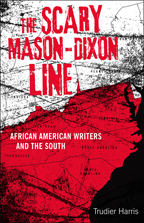 r. Harris, a native of Tuscaloosa, Ala., is the J. Carlyle Sitterson
Professor of English Emerita at the
University of North Carolina at Chapel Hill.
She is the winner of that institution’s inaugural George H. Johnson
prize, recognizing her distinguished achievement as an Institute for
the Arts and Humanities (IAH) Faculty Fellow.
An
eminent authority on African American
literature, she is the author of numerous
books, including “From Mammies to Militants: Domestics in Black American
Literature,” “Saints, Sinners, Saviors: Strong Black Women in African
American Literature,” and “Fiction and Folklore: The Novels of Toni
Morrison.” She is also co-editor of a number of anthologies, including
“The Oxford Companion to African American Literature.” In addition, she
has written a memoir, “Summer Snow: Reflections of a Black Daughter of
the South.” For details, see the
NewsPage release. r. Harris, a native of Tuscaloosa, Ala., is the J. Carlyle Sitterson
Professor of English Emerita at the
University of North Carolina at Chapel Hill.
She is the winner of that institution’s inaugural George H. Johnson
prize, recognizing her distinguished achievement as an Institute for
the Arts and Humanities (IAH) Faculty Fellow.
An
eminent authority on African American
literature, she is the author of numerous
books, including “From Mammies to Militants: Domestics in Black American
Literature,” “Saints, Sinners, Saviors: Strong Black Women in African
American Literature,” and “Fiction and Folklore: The Novels of Toni
Morrison.” She is also co-editor of a number of anthologies, including
“The Oxford Companion to African American Literature.” In addition, she
has written a memoir, “Summer Snow: Reflections of a Black Daughter of
the South.” For details, see the
NewsPage release.
Acclaimed poet Ed Madden to
read from his work April 8
Acclaimed poet Ed Madden will give a reading of his poems
 on Thursday,
April 8, at 7:30 p.m. at ASU’s Cooper Alumni Center. Madden will
highlight works from his new collection of poetry, “Signals,” at the
ASU Cooper Alumni Center’s lower lobby. Madden will sign copies of
his books at a reception held in his honor following the reading,
which is free and open to the public. Madden is the author of “Signals,” selected by Afaa Michael Weaver as
winner of the 2007 South Carolina Poetry Book Prize. His poems have
appeared in the Los Angeles Review, Poetry Ireland, Sojourners,
and other journals, as well as “The Seagull Reader: Poems,” from on Thursday,
April 8, at 7:30 p.m. at ASU’s Cooper Alumni Center. Madden will
highlight works from his new collection of poetry, “Signals,” at the
ASU Cooper Alumni Center’s lower lobby. Madden will sign copies of
his books at a reception held in his honor following the reading,
which is free and open to the public. Madden is the author of “Signals,” selected by Afaa Michael Weaver as
winner of the 2007 South Carolina Poetry Book Prize. His poems have
appeared in the Los Angeles Review, Poetry Ireland, Sojourners,
and other journals, as well as “The Seagull Reader: Poems,” from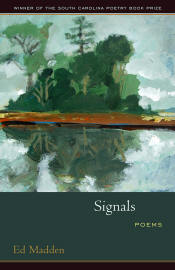 W.W.
Norton, “The Southern Poetry Anthology,” from Texas A&M University
Press, and “The Book of Irish American Poetry from the Eighteenth
Century to the Present,” published by the University of Notre Dame
Press. He was included in “Best New Poets 2007.” Madden grew up
on a rice and soybean farm in northeast Arkansas.
Madden
is currently an associate professor of English and associate director of
Women’s
and
Gender
Studies at the University of South Carolina, as well as a writer-in-residence
for Riverbanks Botanical Gardens and an artist in residence for the
Palmetto Center for the Arts. For details, see the
NewsPage release.
W.W.
Norton, “The Southern Poetry Anthology,” from Texas A&M University
Press, and “The Book of Irish American Poetry from the Eighteenth
Century to the Present,” published by the University of Notre Dame
Press. He was included in “Best New Poets 2007.” Madden grew up
on a rice and soybean farm in northeast Arkansas.
Madden
is currently an associate professor of English and associate director of
Women’s
and
Gender
Studies at the University of South Carolina, as well as a writer-in-residence
for Riverbanks Botanical Gardens and an artist in residence for the
Palmetto Center for the Arts. For details, see the
NewsPage release.
Photographer Roland Freeman is
keynote speaker April 9
Noted photographer and writer
Roland L. Freeman will
speak on Friday, April
9, at 5:15 p.m.
in the Mockingbird Room of ASU’s Student Union.
Freeman’s presentation will showcase photographs he made during the
historic Civil Rights march called “The
Mule Train.” The Mule Train was a major
march that contributed to the “Poor People’s
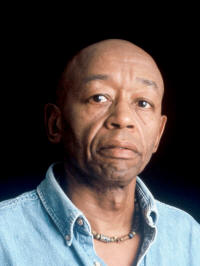 Campaign” during the summer
of 1968. The march began in the Mississippi Delta in Marks, Miss., with
a journey that started with mule-drawn wagons. Freeman’s work is
especially important because his photographs are the major visual record
of this aspect of the Civil Rights Movement, and they tell the story of
the march from the perspective of Freeman’s own participation in this
event. reeman is
the founder and president
of The Group for Cultural
Documentation.
Freeman is
a Washington, D.C.-based freelance photographer, whose work has been
published widely and exhibited throughout the world. He was the first
photographer to be aw Campaign” during the summer
of 1968. The march began in the Mississippi Delta in Marks, Miss., with
a journey that started with mule-drawn wagons. Freeman’s work is
especially important because his photographs are the major visual record
of this aspect of the Civil Rights Movement, and they tell the story of
the march from the perspective of Freeman’s own participation in this
event. reeman is
the founder and president
of The Group for Cultural
Documentation.
Freeman is
a Washington, D.C.-based freelance photographer, whose work has been
published widely and exhibited throughout the world. He was the first
photographer to be aw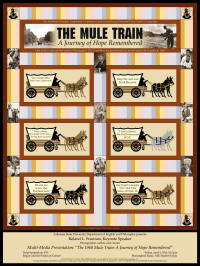 arded
a Young Humanist Fellowship by the National Endowment for the
Humanities(1970), he is the recipient of the Living Legend Award for
Distinguished Achievement in Photography from the National Black
Arts Festival (1994), and he was also awarded the prestigious
National
Heritage Fellowship from the National Endowment for the Arts (2007),
the nation's highest honor in the folk and traditional arts.
Freeman, a native of Baltimore, Maryland, began his professional career
in the 1960s, photographing the Civil Rights Movement. Freeman gained
his initiation into documentary photography through his apprenticeship
and friendship with the groundbreaking African-American photographer
Gordon Parks.
A major emphasis of Freeman’s work is his ongoing self-assigned project,
“While There Is Still Time,” a study of Black culture throughout the
African Diaspora that uses the camera as a tool to research, document,
and interpret the continuity of traditional African American folklife
practices. For details, see the NewsPage release. arded
a Young Humanist Fellowship by the National Endowment for the
Humanities(1970), he is the recipient of the Living Legend Award for
Distinguished Achievement in Photography from the National Black
Arts Festival (1994), and he was also awarded the prestigious
National
Heritage Fellowship from the National Endowment for the Arts (2007),
the nation's highest honor in the folk and traditional arts.
Freeman, a native of Baltimore, Maryland, began his professional career
in the 1960s, photographing the Civil Rights Movement. Freeman gained
his initiation into documentary photography through his apprenticeship
and friendship with the groundbreaking African-American photographer
Gordon Parks.
A major emphasis of Freeman’s work is his ongoing self-assigned project,
“While There Is Still Time,” a study of Black culture throughout the
African Diaspora that uses the camera as a tool to research, document,
and interpret the continuity of traditional African American folklife
practices. For details, see the NewsPage release.
Mississippi bluesman Bobby Rush to
perform April 9
Mississippi bluesman Bobby Rush returns to ASU to Centennial Hall in
the Student Union Friday,
April 9 at 7:30 p.m.
Bobby Rush (born Emmit Ellis Jr.) is the son of a
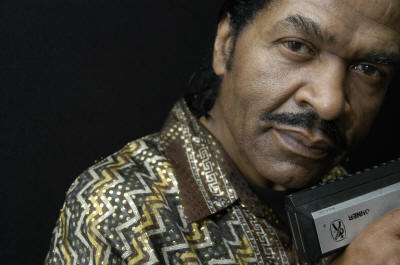 Baptist minister who
was also a blues musician. Rush was born in Louisiana and moved to Pine
Bluff at the age of eight. When Rush was 13, his family moved to
Chicago, where Rush performed with such blues greats as Freddie King,
Luther Johnson, Bobby King and Luther Allison. In 1983, he moved to
Jackson, Miss., where he currently lives.
Rush has recorded for several labels, including ABC Records, Jewel,
Warner Brothers, Philadelphia International, and LaJam. Among the
numerous awards and recognitions for his music are "Best Live Performer
of the Year," "Best Blues Entertainer
of the Year," and "Best Soul/Blues Albums of the Year." In 2000, the
Mississippi Senate passed a resolution honoring Rush’s music. Rush also
appeared in the documentary, “The Road to Memphis,” directed by Richard
Pearce, and the documentary is part of Martin Scorsese’s seven-part film
series, “The Blues.” When he is not performing at festivals and concerts, Rush
and his wife work to raise money for research on sickle cell anemia.
Additionally, they have opened their home as an emergency shelter to
children leaving a local youth correctional facility. Rush is also
involved in local Blues in the Schools programs. Visit
Bobby Rush and
hear the music at MySpace Music. For details, see the
NewsPage release. Baptist minister who
was also a blues musician. Rush was born in Louisiana and moved to Pine
Bluff at the age of eight. When Rush was 13, his family moved to
Chicago, where Rush performed with such blues greats as Freddie King,
Luther Johnson, Bobby King and Luther Allison. In 1983, he moved to
Jackson, Miss., where he currently lives.
Rush has recorded for several labels, including ABC Records, Jewel,
Warner Brothers, Philadelphia International, and LaJam. Among the
numerous awards and recognitions for his music are "Best Live Performer
of the Year," "Best Blues Entertainer
of the Year," and "Best Soul/Blues Albums of the Year." In 2000, the
Mississippi Senate passed a resolution honoring Rush’s music. Rush also
appeared in the documentary, “The Road to Memphis,” directed by Richard
Pearce, and the documentary is part of Martin Scorsese’s seven-part film
series, “The Blues.” When he is not performing at festivals and concerts, Rush
and his wife work to raise money for research on sickle cell anemia.
Additionally, they have opened their home as an emergency shelter to
children leaving a local youth correctional facility. Rush is also
involved in local Blues in the Schools programs. Visit
Bobby Rush and
hear the music at MySpace Music. For details, see the
NewsPage release.
Documentary photo workshop
offered April 9
Dr. Jack Zibluk, associate
professor of journalism at ASU, will
offer a photography
 workshop, “Documenting Delta history and culture,”
on Friday, April 9, at 8-9:45 a.m. as part of Delta Symposium XVI:
Region and
the Politics of Culture. The workshop will be held in the Pine Tree
Room, Student Union. Dr. Zibluk will emphasize skills used by documentarians, but
the workshop will also emphasize compositional techniques useful for
anyone who wishes improve his or her photographic skills. Dr. Zibluk
teaches photography, photojournalism, news design, desktop
publishing, and news writing,
and recently attended the
Kalish Workshop.
There is no
charge for participating in the workshop. Pre-registration is required.
For details, see
the NewsPage release. workshop, “Documenting Delta history and culture,”
on Friday, April 9, at 8-9:45 a.m. as part of Delta Symposium XVI:
Region and
the Politics of Culture. The workshop will be held in the Pine Tree
Room, Student Union. Dr. Zibluk will emphasize skills used by documentarians, but
the workshop will also emphasize compositional techniques useful for
anyone who wishes improve his or her photographic skills. Dr. Zibluk
teaches photography, photojournalism, news design, desktop
publishing, and news writing,
and recently attended the
Kalish Workshop.
There is no
charge for participating in the workshop. Pre-registration is required.
For details, see
the NewsPage release.
Jimmy 'Duck' Holmes offers Blues in the Schools
April 9
Fourth, fifth, and sixth grade students at Jonesboro Visual and
Performing Arts Magnet School will e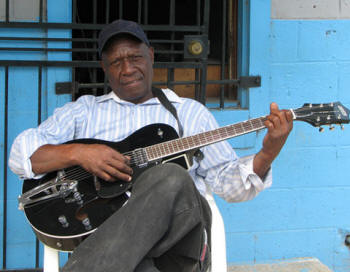 xperience a special blues program on
Friday, April 9, at 2 p.m. The program, in conjunction with Arkansas
State University’s Delta Symposium
XVI, will feature blues guitarist and vocalist
Jimmy “Duck” Homes. A native
of Bentonia, Mississippi, Holmes plays in the distinctive style of local
blues legends Skip James
and
Jack Owens, and he operates one of the oldest “juke joints” in the
state, Bentonia’s Blue Front Cafe, the rural
juke joint that Holmes and his family have operated since 1948.
immy
"Duck" Holmes burst onto the international blues scene in 2006 with
his debut CD, “Back to Bentonia,” released on
Broke and Hungry Records.
Holmes was also featured in the award-winning film M for
Mississippi: A Road Trip through the Birthplace of the Blues.
Holmes also works as an educator and will be joined for the Blues in the
Schools presentation by Dr. Mike Luster of the Arkansas Folklife
Program. Holmes will be in
Jonesboro as a part of ASU-Jonesboro’s
Delta Symposium XVI: Region and the
Politics of Culture.
While the Blues in the
Schools
program is not open to the public,
Holmes will make a public appearance on
Saturday, April 10, in the afternoon at
Bluegrass Morning/Blues Bash
Afternoon.
The program at Jonesboro Visual and Performing Arts Magnet School is
part of an on-going effort to bring to bring blues, jazz, bluegrass, and
other forms of vernacular music to Arkansas school children. The program
is presented under the auspices of the Arkansas Folklife Program, with
special support from ASU’s Office of Diversity and the National
Endowment for the Arts.
For more information contact Dr.
Mike Luster, Arkansas Folklife Program, or see the
NewsPage release. xperience a special blues program on
Friday, April 9, at 2 p.m. The program, in conjunction with Arkansas
State University’s Delta Symposium
XVI, will feature blues guitarist and vocalist
Jimmy “Duck” Homes. A native
of Bentonia, Mississippi, Holmes plays in the distinctive style of local
blues legends Skip James
and
Jack Owens, and he operates one of the oldest “juke joints” in the
state, Bentonia’s Blue Front Cafe, the rural
juke joint that Holmes and his family have operated since 1948.
immy
"Duck" Holmes burst onto the international blues scene in 2006 with
his debut CD, “Back to Bentonia,” released on
Broke and Hungry Records.
Holmes was also featured in the award-winning film M for
Mississippi: A Road Trip through the Birthplace of the Blues.
Holmes also works as an educator and will be joined for the Blues in the
Schools presentation by Dr. Mike Luster of the Arkansas Folklife
Program. Holmes will be in
Jonesboro as a part of ASU-Jonesboro’s
Delta Symposium XVI: Region and the
Politics of Culture.
While the Blues in the
Schools
program is not open to the public,
Holmes will make a public appearance on
Saturday, April 10, in the afternoon at
Bluegrass Morning/Blues Bash
Afternoon.
The program at Jonesboro Visual and Performing Arts Magnet School is
part of an on-going effort to bring to bring blues, jazz, bluegrass, and
other forms of vernacular music to Arkansas school children. The program
is presented under the auspices of the Arkansas Folklife Program, with
special support from ASU’s Office of Diversity and the National
Endowment for the Arts.
For more information contact Dr.
Mike Luster, Arkansas Folklife Program, or see the
NewsPage release.
Bluegrass Morning/Blues Bash
Afternoon finale is April 10
Radio station KASU’s Blue Monday and Bluegrass Monday events come
together on Saturday, April 10 at Arkansas State University-Jonesboro’s
16th annua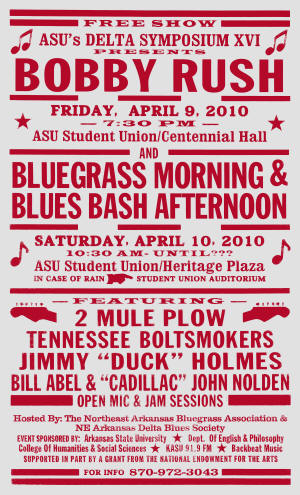 l Delta Symposium. This special outdoor event,
“Bluegrass Morning/Blues Bash Afternoon,” closes out the symposium and features
bluegrass bands, blues acts, and an open mike-jam session that will
showcase musicians from the Arkansas and Mississippi Deltas. At 9:30
a.m., a pre-event jam session for bluegrass pickers will begin at
Heritage Plaza, an outdoor area on the east side of ASU’s Student
Union. The
opening band begins at 10:30 a.m., and the music continues until 4 p.m.
The ASU Student Union Auditorium will be available as a rain location. The
Tennessee Boltsmokers and
2 Mule Plow will open up the show at 10:30
a.m. with sets of traditional and progressive bluegrass music. Both
bands are known for their hard-driving bluegrass sound and for their
intricate instrumentals and rich harmonies. The
afternoon features Mississippi Delta bluesmen
Bill Abel and ‘Cadillac’
John Nolden’s guitar and harmonica country blues act and closes with the
deep Delta Blues of
Jimmy ‘Duck’ Holmes. Bill Abel and
‘Cadillac’ John Nolden are
country blues players from the Clarksdale, Miss. area. Abel is an
excellent guitarist and vocalist, and ‘Cadillac’ John Nolden is a
vir l Delta Symposium. This special outdoor event,
“Bluegrass Morning/Blues Bash Afternoon,” closes out the symposium and features
bluegrass bands, blues acts, and an open mike-jam session that will
showcase musicians from the Arkansas and Mississippi Deltas. At 9:30
a.m., a pre-event jam session for bluegrass pickers will begin at
Heritage Plaza, an outdoor area on the east side of ASU’s Student
Union. The
opening band begins at 10:30 a.m., and the music continues until 4 p.m.
The ASU Student Union Auditorium will be available as a rain location. The
Tennessee Boltsmokers and
2 Mule Plow will open up the show at 10:30
a.m. with sets of traditional and progressive bluegrass music. Both
bands are known for their hard-driving bluegrass sound and for their
intricate instrumentals and rich harmonies. The
afternoon features Mississippi Delta bluesmen
Bill Abel and ‘Cadillac’
John Nolden’s guitar and harmonica country blues act and closes with the
deep Delta Blues of
Jimmy ‘Duck’ Holmes. Bill Abel and
‘Cadillac’ John Nolden are
country blues players from the Clarksdale, Miss. area. Abel is an
excellent guitarist and vocalist, and ‘Cadillac’ John Nolden is a
vir_small1.JPG) tuoso blues harmonica player. Jimmy ‘Duck’ Holmes owns and often
performs in one of the oldest juke joints in the Delta -- the Blue Front
in Bentonia, Miss. Holmes grew up in a sharecropper’s family, and his
guitar style and vocals show the direct influence of early blues
artists from the Bentonia area, including
Jack Owens and
Skip James. After the sets by the featured
performers, the stage will be turned over to an open-mike performance
supported by the Northeast Arkansas Delta Blues Society of Jonesboro and KASU 91.9 FM. Musicians attending the event will be welcome to perform
onstage as solo acts or with back-up provided by symposium participants.
For details, see the NewsPage release,
or
contact the Department of English and Philosophy at (870) 972-3043,
visit the
Delta Symposium Web site,
or download a printable program.
A plaintext version of the full program is also available.
All symposium events are free and
open to the public. tuoso blues harmonica player. Jimmy ‘Duck’ Holmes owns and often
performs in one of the oldest juke joints in the Delta -- the Blue Front
in Bentonia, Miss. Holmes grew up in a sharecropper’s family, and his
guitar style and vocals show the direct influence of early blues
artists from the Bentonia area, including
Jack Owens and
Skip James. After the sets by the featured
performers, the stage will be turned over to an open-mike performance
supported by the Northeast Arkansas Delta Blues Society of Jonesboro and KASU 91.9 FM. Musicians attending the event will be welcome to perform
onstage as solo acts or with back-up provided by symposium participants.
For details, see the NewsPage release,
or
contact the Department of English and Philosophy at (870) 972-3043,
visit the
Delta Symposium Web site,
or download a printable program.
A plaintext version of the full program is also available.
All symposium events are free and
open to the public.
Back to the top |
|

